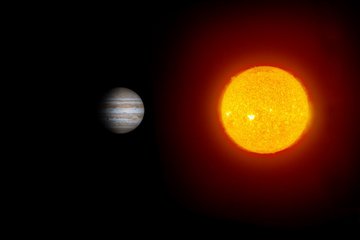Splinter Meeting: Science with the LBT
The Large Binocular Telescope (LBT) is approaching the completion of its suite of first generation instruments.
Aim of the meeting
The three pairs of facility instruments LBC, Luci1&2, and MODS1&2 are expected to enter full binocular operations in the course of the year 2016. Both Luci1&2 will be offered in diffraction limited observing modes in 2016, and the PI and strategic instruments PEPSI and LBTI will move to regular operations next year as well. It is thus to be expected to see a boost in the scientific productivity of the LBT in the near future. The aim of this splinter meeting is to present some of the recent science highlights obtained with the LBT, and to outline the future science opportunities at the observatory.
Time
Wednesday, September 16, 2015, 15:00 - 18:30
Convener
Roland Gredel, MPIA
Preliminary programme
Oral presentations
Christian Veillet: Scientific opportunities at the LBT - recent developments in instrumentation and operations
Klaus Strassmeier: Feel the taste: The new Potsdam echelle polarimetric and spectroscopic instrument for the LBT
Matthias Frank: ACME: the Andromeda C- and M-star Exploration
Gerold Busch: On the black hole mass - bulge luminosity relation of low-luminosity type-1 QSOs
Coffee/Tea
Eva Wuyts: The evolution of galaxy abundances from z=2.6 to z=0.8
Shiwei Wu: LOBSTAR: Understanding the massive stellar content of young star-forming regions
Mark Norris/Matthias Frank: The nature of ultra-compact dwarf galaxies
Matthias Mallonn: Exoplanet transit and eclipse observations with MODS and LBC
Posters
M. Langener: Characteristics of extremely blue starbursting galaxies
G. Bihain: Ultra-cool dwarf neighbors of the Sun spectroscopically confirmed with LBT/Luci
A. Rabitz: Unveiling distant X-ray selected galaxy clusters with LBC and MODS





